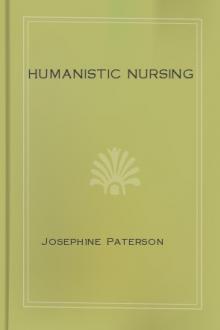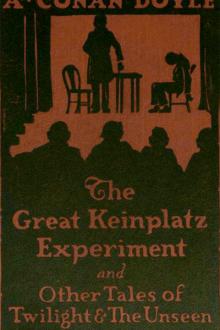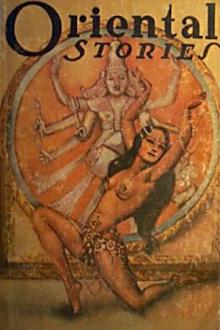Genre Other. Page - 328

stro, turning red with embarrassment, "we're going to Venus."
"What's so unusual about going to Venus?" asked Strong.
"We're going hunting," replied Astro.
"Hunting?"
"Yes, sir," gulped the big Venusian. "For tyrannosaurus."
Strong's jaw dropped and he sat down suddenly on the nearest acceleration cushion. "I expected something a little strange from you three whiz kids." He laughed. "It would be impossible for you to go home and relax for a month. But this blasts me! Hunting for a tyrannosaurus! What are you going to do with it after you catch it?" He paused and then added, "If you do."
"Eat it," said Astro simply. "Tyrannosaurus steak is delicious!"
Strong doubled with laughter at the seriousness of Astro's expression. The giant Venusian continued doggedly, "And besides, there's a bounty on them. A thousand credits for every tyranno head brought in. They're dangerous and destroy a lot of crops."
Strong straightened up. "All right, all right! Go ahead! H

s re-issue of Paterson and {v} Zderad's classic work will help to remind us of another way of developing our power. Perhaps we can, once again, look for and call for authentic dialogue with our patients, our students, and our colleagues. Paterson and Zderad are clear in their method: discuss, question, convey, clarify, argue, and reflect. They remind us of our uniqueness and our commonality. They tell us that it is necessary to do with and be with each other in order for any one of us to grow. They help us celebrate the power of our choices.
Is it ironic and fortunate that Humanistic Nursing should be re-issued now when it is needed even more than it was during the late 1970s? Then, humanitarianism was in vogue. Now, it is under attack as a secular religion.
Today, the technocratic imperative infiltrates an ever-increasing number of our lived experiences; and it becomes more difficult to ignore or dismiss Habermas's analysis that all interests have become technical rather than human.[6]

ychical experiences which had befallen him. I at least was sound in nerve and brain, and it was with something of the pleasurable thrill of anticipation with which the sportsman takes his position beside the haunt of his game that I shut the laboratory door behind me, and partially undressing, lay down upon the rug-covered settee.
It was not an ideal atmosphere for a bedroom. The air was heavy with many chemical odours, that of methylated spirit predominating. Nor were the decorations of my chamber very sedative. The odious line of glass jars with their relics of disease and suffering stretched in front of my very eyes. There was no blind to the window, and a three-quarter moon streamed its white light into the room, tracing a silver square with filigree lattices upon the opposite wall. When I had extinguished my candle this one bright patch in the midst of the general gloom had certainly an eerie and discomposing aspect. A rigid and absolute silence reigned throughout the old house, so that the low sw

wolfish hardness that suggested the nomad. He was closer to the basic Turanian rootstock than was the Turk; nearer to the wolfish, wandering Mongols who were his ancestors.
"Speak, Ak Boga," said the Amir in a deep powerful voice. "Ravens have flown westward, but there has come no word."
"We rode before the word, my lord," answered the warrior. "The news is at our heels, traveling swift on the caravan roads. Soon the couriers, and after them the traders and the merchants, will bring to you the news that a great battle has been fought in the west; that Bayazid has broken the hosts of the Christians, and the wolves howl over the corpses of the kings of Frankistan."
"And who stands beside you?" asked Timour, resting his chin on his hand and fixing his deep somber eyes on the Scotsman.
"A chief of the Franks who escaped the slaughter," answered Ak Boga. "Single-handed he cut his way through the melee, and in his flight paused to slay a Frankish lord who had put shame upon him aforetim

PSYCHOLOGY OF THE LEADERS OF THE REVOLUTION
1. Mentality of the men of the Revolution. The respective influence of violent and feeble characters 2. Psychology of the Commissaries or Representatives ``on Mission'' 3. Danton and Robespierre 4. Fouquier-Tinville, Marat, Billaud-Varenne, &c. 5. The destiny of those Members of the Convention who survived the Revolution
BOOK III
THE CONFLICT BETWEEN ANCESTRAL INFLUENCES AND REVOLUTIONARY PRINCIPLES
CHAPTER I.
THE LAST CONVULSIONS OF ANARCHY. THE DIRECTORY 1. Psychology of the Directory 2. Despotic Government of the Directory. Recrudescence of the Terror 3. The Advent of Bonaparte 4. Causes of the Duration of the Revolution
CHAPTER II.
THE RESTORATION OF ORDER. THE CONSULAR REPUBLIC 1. How the work of the Revolution was confirmed by the Consulate 2. The re-organisation of France by the Consulate 3. Psychological elements which determined the success o

our time, Kate," said Cumberland softly.
"'Bart,' called Dan," she went on, "and there was such anger in his face that I think I was more afraid of him than of the big dog.
"Bart turned to him with a snarl and bared his teeth. When Dan saw that his face turned--I don't know how to say it!"
She stopped a moment and her hands tightened.
"Back in his throat there came a sound that was almost like the snarl of Black Bart. The wolf-dog watched him with a terror that was uncanny to see, the hair around his neck fairly on end, his teeth still bared, and his growl horrible.
"'Dan!' I called, 'don't go near him!'
"I might as well have called out to a whirlwind. He leaped. Black Bart sprang to meet him with eyes green with fear. I heard the loud click of his teeth as he snapped--and missed. Dan swerved to one side and caught Black Bart by the throat and drove him into the dust, falling with him.
"I couldn't move. I was weak with horror. It wasn't a struggle between a man

exquisitely pure skin, and her tender blue eyes. On the other, he would have discovered a bright little creature, who would have fascinated and perplexed him at one and the same time. If he had been questioned about her by a stranger, he would have been at a loss to say positively whether she was dark or light: he would have remembered how her eyes had held him, but he would not have known of what color they were. And yet, she would have remained a vivid picture in his memory when other impressions, derived at the same time, had vanished. "There was one little witch among them, who was worth all the rest put together; and I can't tell you why. They called her Emily. If I wasn't a married man--" There he would have thought of his wife, and would have sighed and said no more.
While the girls were still admiring Francine, the clock struck the half-hour past eleven.
Cecilia stole on tiptoe to the door--looked out, and listened--closed the door again--and addressed the meeting with the irresistible

on of their vast numbers, and contriving in some way or other to represent to the imagination a new and mighty power, a power, moreover, not altogether friendly to us.
Great revelations of nature, of course, never fail to impress in one way or another, and I was no stranger to moods of the kind. Mountains overawe and oceans terrify, while the mystery of great forests exercises a spell peculiarly its own. But all these, at one point or another, somewhere link on intimately with human life and human experience. They stir comprehensible, even if alarming, emotions. They tend on the whole to exalt.
With this multitude of willows, however, it was something far different, I felt. Some essence emanated from them that besieged the heart. A sense of awe awakened, true, but of awe touched somewhere by a vague terror. Their serried ranks, growing everywhere darker about me as the shadows deepened, moving furiously yet softly in the wind, woke in me the curious and unwelcome suggestion that we had trespasse

my first class and sat down. From the second I walked in the door, hushed conversations were severed as 40 eyes dug into me and trailed me as I slumped into the first empty desk I saw. I darted my eyes around, everybody avoided eye contact. I lined my pencils up on my desktop while the room sat in a still, thick silence.
They had to have heard about my dad's death, but I hoped the word hadn't gotten about regarding my ill-gotten gains. It shouldn't have; I didn't tell anybody. Still, if everybody knows, I'd need to hire a bodyguard just to hold off the ironic requests for loans. I tried to imagine how much bodyguards cost; I remembered reading somewhere that a legitimate executive security firm charges about a thousand dollars per day. I could get a bodyguard for 500 days, and then I wouldn't need one anymore. Spending all your money to keep people from getting your money -- that should have been a Twilight Zone episode. Hell, it probably was. By the hundredth episode they had to have been rep

paper clip out of his pocket and opens it out, and I think maybe he has a penknife, too, and next thing I know the padlock is open.
"Gee, how'd you do that?"
"Sh-h-h. A guy showed me how. You better get your cat and scram."
Golly, I wonder, maybe the guy is a burglar, and that gives me another creepy feeling. But would a burglar be taking time out to get a kid's cat free?
"Well, thanks for the cat. See you around," I say.
"Sh-h-h. I don't live around here. Hurry up, before we both get caught."
Maybe he's a real burglar with a gun, even, I think, and by the time I dodge past the elevators and get out in the cold April wind, the sweat down my back is freezing. I give Cat a long lecture on staying out of basements. After all, I can't count on having a burglar handy to get him out every time.
Back home we put some nice jailhouse blues on the record player, and we both stretch out on the bed to think. The guy didn't really look like a burglar. And he didn't